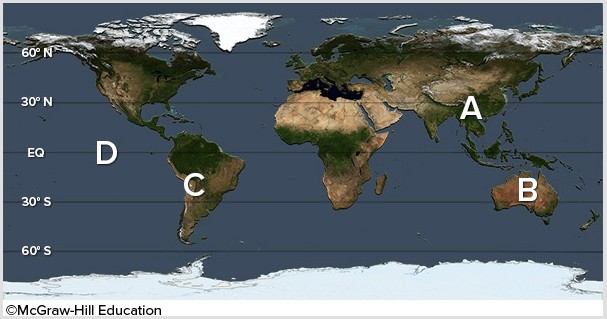What is the difference between velocity and discharge of water through a river channel? What will be an ideal response?
Velocity of a river is the speed of travel of water through its channel in, for example, feet per second.
Discharge of a river is the volume-rate of flow through the channel in, for example, cubic feet per
second. Mathematically, you get discharge by multiplying the velocity times an area reflecting the
shape of a two-dimensional cross section through the channel. This results in an answer expressed in
cubic units of volume, such as cubic feet, per second, which is an expression of volume-rate of flow.
You might also like to view...
An example of point source pollution is
A. runoff from cropland. B. fertilizer runoff from lawns. C. litter from fishing boats. D. runoff from cropland. E. a drainpipe from a factory.
Which of the following protists do scientists believe gave rise to animals?
A) amoebas B) sponges C) choanoflagellates D) ciliates
Biome composed of a coniferous and deciduous trees with a short summer.
A. pelagic B. pioneer community C. marsh D. euphotic E. boreal forest F. deciduous forest G. grassland H. desert I. tundra J. biochemical oxygen demand K. phytoplankton L. savanna M. littoral zone N. benthic O. periphyton
Which of the following locations would have the lowest specific humidity values in July due to the sinking motion of subtropical high pressure areas?
A. A B. B C. C D. D